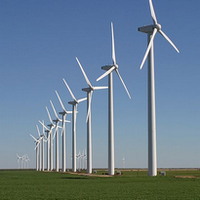A large-scale deployment of clean energy technology is gaining speed on the global stage, causing shifts of significant geopolitical consequence. As clean energy moves from margin to mainstream, it is set to alter the balance of energy security and energy power among key regions of the world. Nations will redraw the energy map, both by assessing access to renewable resources and evaluating their traditional alliances. The degree to which frameworks are established so that clean energy drives not just competition, but also cooperation, will be key to determining the impact it ultimately has on international relations.
Energy transitions take time. It took 100 years for coal to go from supplying 10 percent to 60 percent of the world's commercial energy. Thereafter, it was 60 years after the introduction of oil as a fuel source before it supplied 50 percent of the world's energy. But even though it is only now gaining prominence, the shift to clean renewable sources of energy is well underway, with current investments exceeding $200 billion per year.
Increasingly, global leaders have begun to characterize the clean energy transition as a race for innovation, jobs, and -- in no uncertain terms -- economic prosperity. In his State of the Union address, President Barack Obama took a page from New York Times columnist Thomas Friedman, saying, "The nation that leads the clean energy economy will be the nation that leads the global economy. And America must be that nation." Although it is politically convenient to characterize this 21st-century trend in a competitive frame, clean energy deployment will also deliver renewed levels of bilateral and multilateral cooperation. In other words, clean energy deployment does not have to be a zero-sum game, even if that assertion doesn't make for headline-grabbing sound-bites.

